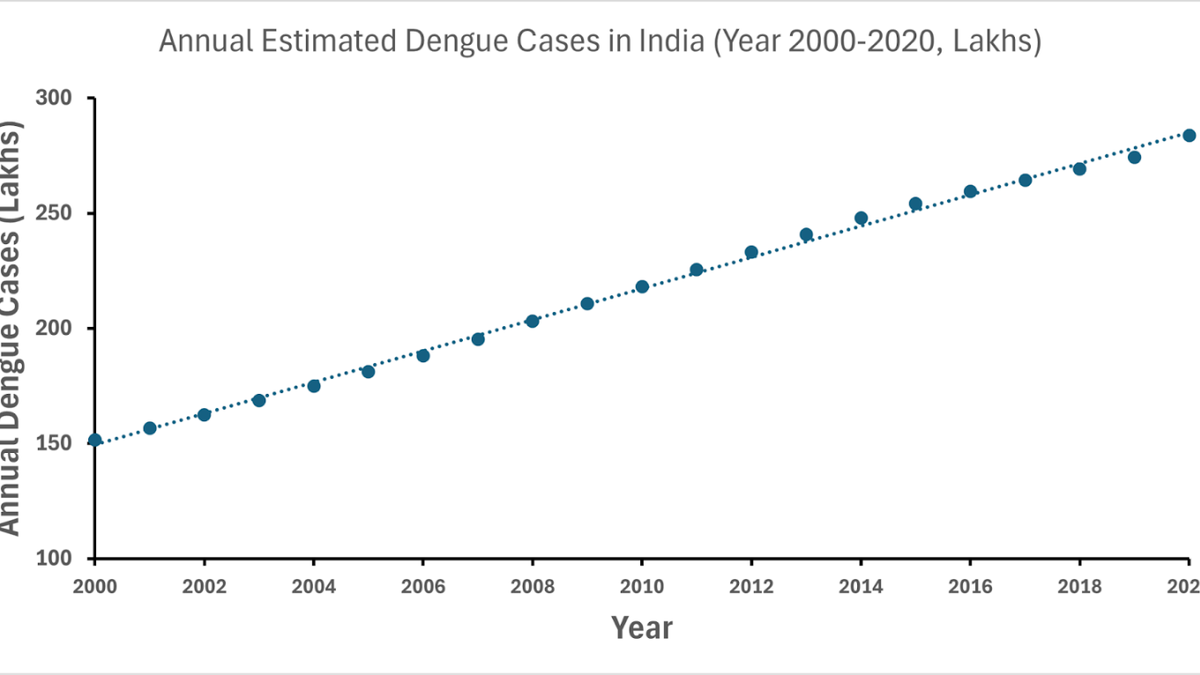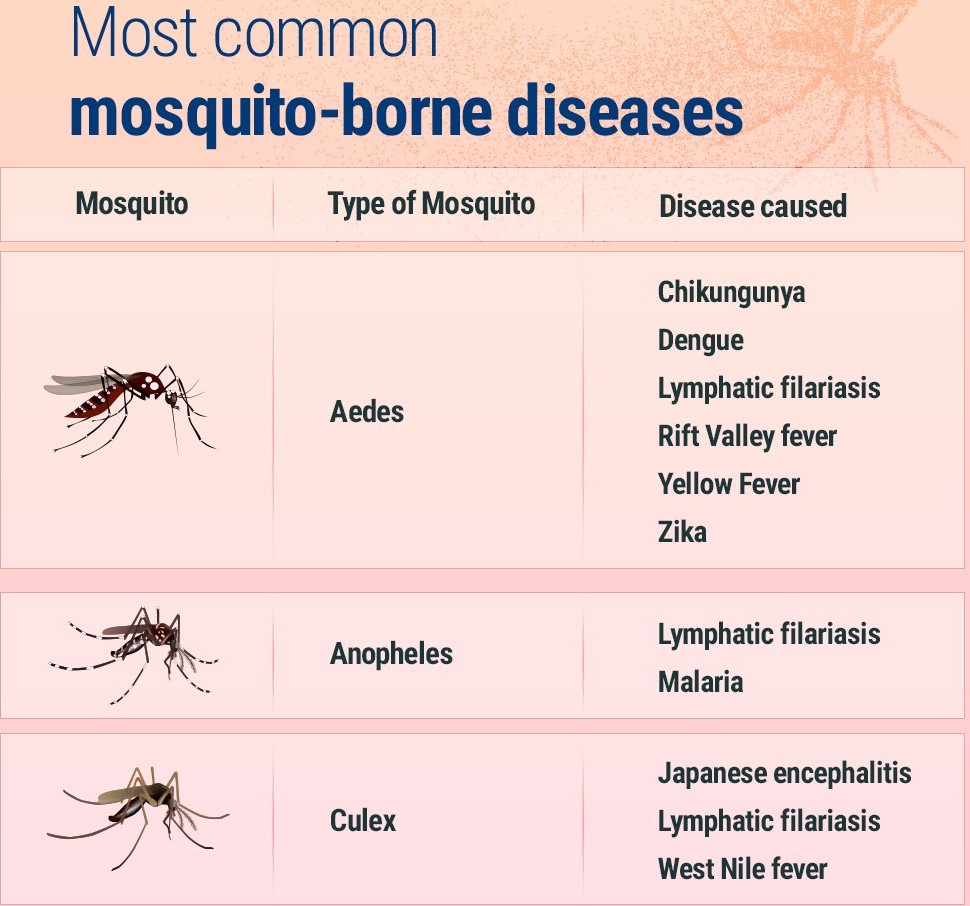Important Facts For Prelims
Wolbachia-Infected Mosquitoes for Dengue Control
- 19 Aug 2024
- 5 min read
Why in News?
Dengue fever, chikungunya, and Zika virus represent major public health challenges in India, leading to considerable economic losses and healthcare burdens.
- The limited success of traditional control methods underscores the need for innovative strategies, such as the use of Wolbachia-infected mosquitoes, which offer a promising alternative.
Note:
- As of April 2024, India recorded 19,447 dengue cases and 16 deaths. Kerala had the highest number of cases, followed by Tamil Nadu.
- In India, the economic impact of dengue is estimated at Rs 28,300 crore annually, alongside 5.68 lakh years of young life lost.
- Globally, the World Health Organization (WHO) has reported over 7.6 million cases of dengue as of April 2024.
How does Wolbachia Help in Controlling Mosquito Populations?
- About:
-
Wolbachia is a common type of bacteria found in insects. Approximately 6 in 10 of all insects, including butterflies, bees, and beetles, around the world have Wolbachia.
-
Wolbachia bacteria cannot make people or animals (for example, fish, birds, pets) sick.
- They are not found in Aedes Aegypti mosquitoes.
-
- Aedes aegypti can spread viruses including dengue, Zika, and chikungunya.
- Aedes mosquitoes with Wolbachia can be used to reduce the number of target mosquito species.
- Mosquitoes with Wolbachia are not genetically modified.
-
- Process of Production: Wolbachia bacteria are first introduced into the eggs of male and female Aedes Aegypti mosquitoes.
- The eggs are then used to mass-produce new mosquitoes infected with Wolbachia.
- There are 2 Wolbachia strains, wMel and wAlbB, that have been transinfected into Aedes Aegypti mosquitoes for population replacement.
- After production, the mosquitoes are sorted by sex, with only the males being retained for release, while the females are kept for further breeding in the laboratory.
- The eggs are then used to mass-produce new mosquitoes infected with Wolbachia.
- Use for Mosquito Control: Wolbachia-infected mosquitoes are used to lower the population of target species like Aedes Aegypti, the yellow fever mosquito, that can spread dengue fever, chikungunya, Zika fever, Mayaro etc.
- Control professionals release male Aedes Aegypti mosquitoes carrying Wolbachia into areas with wild Aedes Aegypti.
- When these males mate with wild females that lack Wolbachia, the eggs produced do not hatch. As a result, the population of Aedes Aegypti mosquitoes decreased.
- Status of Wolbachia Programs in India: India currently lacks an active Wolbachia mosquito release program.
- The Indian Council of Medical Research - Vector Control Research Center (ICMR-VCRC) has initiated the development of wMel Aedes strains but has faced delays in public updates and government approvals.
- Recent findings indicate the natural presence of Wolbachia in Aedes mosquitoes in Northeast India, though its immediate significance is unknown.
Global Examples for Wolbachia Implementation
- In Singapore, the release of infected male mosquitoes resulted in a 90% reduction in the Aedes population and a 77% decrease in dengue cases in release areas.
- Australia adopted a population replacement strategy, leading to a stable wMel strain genome in wild populations and significant reductions in dengue incidence.
- A landmark randomised controlled trial in Indonesia demonstrated that areas with released wMel (strain) mosquitoes experienced a 77% reduction in dengue cases and an 86% decrease in hospitalizations.
UPSC Civil Services Examination, Previous Year Question
Q. Consider the following statements: (2017)
- In tropical regions, Zika virus disease is transmitted by the same mosquito that transmits dengue.
- Sexual transmission of Zika virus disease is possible.
Which of the statements given above is/are correct?
(a) 1 only
(b) 2 only
(c) Both 1 and 2
(d) Neither 1 nor 2
Ans: (c)
Q. ‘Wolbachia method’ is sometimes talked about with reference to which one of the following? (2023)
(a) Controlling the viral diseases spread by mosquitoes
(b) Converting crop residues into packing material
(c) Producing biodegradable plastics
(d) Producing biochar from thermo-chemical conversion of biomass
Ans: (a)






